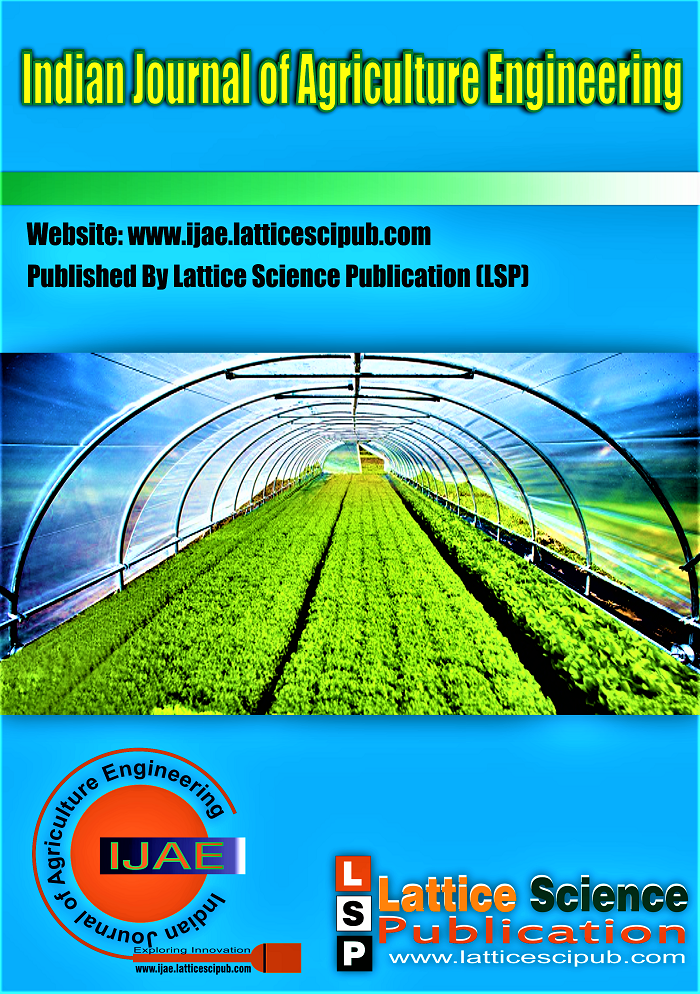Effects of Rice Husk Ash Addition on the Refractory Properties of Owo Clay
Main Article Content
Abstract
This research investigates the effect of rice husk ash (RHA) addition on the refractory properties of Owo clay. The clay is blended with RHA in increments of 5% for each experimental run. The blended material undergoes exposure to temperatures ranging from normal crucible liner conditions to 1200° C, followed by characterization for shrinkage, porosity, density, water absorption, and modulus of rupture. Results indicate that total shrinkage increases with RHA content throughout the experimental phase but stability was observed at 10% RHA. Porosity decreases with increasing RHA content, with the 10% RHA blend showing the most consistent decrease. RHA enhances compressive strength, reaching a peak of 24 N/mm² for 5% RHA at 1200°C, and a minimum of 10 N/mm² for 5% RHA at 900°C. Bulk density increases with decreasing porosity as temperature rises. Overall, the 90%-10% Owo clay-RHA Clay blend demonstrates the most suitable properties for industrial applications.
Downloads
Article Details

This work is licensed under a Creative Commons Attribution-NonCommercial-NoDerivatives 4.0 International License.
How to Cite
References
T. M., Onyia, P. E., Romanus, F. O., Iyida, L. O., Ugwuoke, N. F., Idenyi, “Investigating the Physico- Chemical Properties of Blended Owo Clay and Eha-Ndiagu Clay,” Int. J. Innov. Sci. Eng. Technol. Res., vol.2, no. June, pp. 39–45, 2023, doi: https://www.researchgate.net/publication/371635783_Investigating%20_the_PhysicoChemical_Properties_of_Blended_Owo_Clay_and_Eha-Ndiagu_Clay
N. Kelechukwu, J. S. Jatau, A. Tokan, and B. Bello, “Improving the Refractory Properties of Alkaleri Clay using Rice Hush Ash as Additive for Ferrous Casting,” vol. 7, no. 4, pp. 1–11, 2018, doi: https://em.majlesi.info/index.php/em/article/view/377
G. R. Otoko and K. Precious, “STABILIZATION OF NIGERIAN DELTAIC CLAY (CHIKOKO ) WITH GROUNDNUT SHELL,” no. October, 2014, doi: https://doi.org/10.13140/2.1.3976.0642
G. Görhan and S. Osman, “Porous clay bricks manufactured with rice husks,” vol. 40, pp. 390–396, 2013, doi: https://doi.org/10.1016/j.conbuildmat.2012.09.110
S. M. S. Kazmi, S. Abbas, M. A. Saleem, M. J. Munir, and A. Khitab, “Manufacturing of sustainable clay bricks: Utilization of waste sugarcane bagasse and rice husk ashes,” Constr. Build. Mater., vol. 120, pp. 29–41, 2016, doi: https://doi.org/10.1016/j.conbuildmat.2016.05.084
R. Pode, “Potential applications of rice husk ash waste from rice husk biomass power plant,” Renew. Sustain. Energy Rev., vol. 53, pp. 1468–1485, 2016, doi: https://doi.org/10.1016/j.rser.2015.09.051
M. S. Sultana, M. I. Hossain, A. Rahman, and M. H. Khan, “Influence of Rice Husk Ash and Fly Ash on Properties of Red Clay,” 2014, doi: 10.3329/jsr.v6i3.15343. https://doi.org/10.3329/jsr.v6i3.15343
M. Agbede, I. O, and Joel, “Effect of rice husk ash ( RHA ) on the properties of Ibaji burnt clay bricks,” pp. 674–677, 2011, doi: https://doi.org/10.5251/ajsir.2011.2.4.674.677
T. M. Onyia, P. Onyia, L. Iyida, and N. F. Ugwuoke, “Exploring The Benefits Of Incorporating Rice Husk And Groundnut Shell In Refractory Bricks,” Int. J. Innov. Sci. Eng. Technol. Res., vol. 11(2), no. June, pp. 31–38, 2023, doi: https://www.researchgate.net/publication/371277063_Exploring_The_Benefits_Of_Incorporating_Rice_Husk_And_Groundnut_Shell_In_Refractory_Bricks
G. H. M. J. S. De Silva and M. L. C. Surangi, “Effect of waste rice husk ash on structural , thermal and run-off properties of clay roof tiles,” Constr. Build. Mater., vol. 154, pp. 251–257, 2017, doi: https://doi.org/10.1016/j.conbuildmat.2017.07.169
S. Janbuala and T. Wasanapiarnpong, “Effect of Rice Husk and Rice Husk Ash on Properties of Lightweight Clay Bricks,” vol. 659, pp. 74–79, 2015, doi: https://doi.org/10.4028/www.scientific.net/KEM.659.74
S. Janbuala, U. Kitthawee, and M. Aermbua, “Effect of Rice Husk Ash to Mechanical Properties of Clay Bricks,” vol. 770, pp. 50–53, 2013, doi: https://doi.org/10.4028/www.scientific.net/AMR.770.50
H. M. Lomertwala, P. W. Njoroge, S. A. Opiyo, and B. M. Ptoton, “Characterization of Clays from selected sites for Refractory Application,” vol. 9, no. 11, pp. 600–603, 2019, doi: https://doi.org/10.29322/IJSRP.9.11.2019.p9581
I. O. Odewale et al., “Effect of Variations in Percentage Composition of Al 2 O 3 . 2SiO 2 . 2H 2 O , KAlSi 3 O 8 and SiO 2 on the Properties of Locally Produced 33KVA Porcelain Insulator,” no. November, 2023, doi: https://doi.org/10.9790/1684-1706043744
Srinath, D., & Ramesh, G. (2022). A Review on Mechanical Properties of Sustainable Concrete by using Rise husk ash and hydrated lime. In Indian Journal of Design Engineering (Vol. 2, Issue 1, pp. 8–11). https://doi.org/10.54105/ijde.c8016.021322
Sarmilee Patnaik, S. Ashish, G. Devi Vara Prasad, G. Srikanth, Research on Strength Properties of Concrete by Partial Replacement of Cement with Rice Husk Ash. (2019). In International Journal of Innovative Technology and Exploring Engineering (Vol. 8, Issue 12S2, pp. 322–324). https://doi.org/10.35940/ijitee.l1059.10812s219
Ashok Kumar. N, Velayutham.T, Experimental Research on Rice Husk Ash as Replacement to Cement in Construction Industry. (2019). In International Journal of Recent Technology and Engineering (Vol. 8, Issue 2S8, pp. 1197–1200). https://doi.org/10.35940/ijrte.b1037.0882s819
Choudhury, I. B. R., Subhalakshmi, V., Kumar, G. K., & Reddy, A. S. N. (2019). Strength of Concrete with RHA and Metakaolin. In International Journal of Engineering and Advanced Technology (Vol. 9, Issue 2, pp. 4689–4693). https://doi.org/10.35940/ijeat.b5129.129219
Chauhan, Mr. D. K., & Sharma, Dr. N. (2023). Phytochemical and Biological Activity of Rice Bran: A Review. In International Journal of Advanced Pharmaceutical Sciences and Research (Vol. 4, Issue 1, pp. 1–11). https://doi.org/10.54105/ijapsr.a4030.124123





